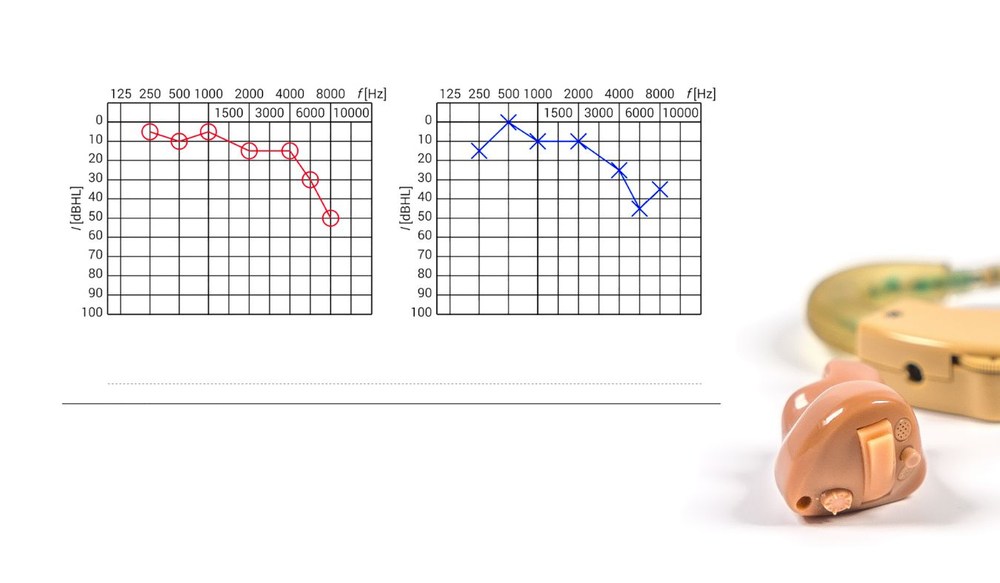How to Differentiate Between Types of Hearing Tests
Hearing tests might seem like a complex puzzle, filled with different

By: admin | April 30, 2024
Air travel can be a thrilling experience, but if you’re dealing with hearing loss, it might also come with some unique challenges. But don’t fret! With a little bit of preparation and understanding, you can ensure a smooth and enjoyable flight. This article is here to provide you with helpful tips and practical advice to make your air travel experience less intimidating and more enjoyable. We’ll discuss topics like the impact of cabin pressure on hearing and how to manage hearing aids during security checks.
Flying can bring about certain situations that may directly impact your hearing. These include changes in cabin pressure during take-off and landing, the constant hum of the aircraft and the need to communicate in a noisy environment. Managing hearing aids during security checks can also be a concern for some. But, armed with the right information and planning, these situations can be effectively handled. It’s vital to understand these aspects of air travel to ensure a comfortable flight experience.
One of the main factors to consider when flying is how changes in air pressure can affect your ears. The quick change in altitude during a flight can cause discomfort due to an imbalance of air pressure between the inside and outside of your ear. This common experience, known as “airplane ear,” occurs when the Eustachian tubes, which equalize ear pressure, cannot adjust quickly enough to the sudden changes in altitude. This can lead to discomfort or temporary hearing loss. Being aware of this phenomenon is crucial for managing your hearing needs effectively during air travel.
The term ‘airplane ear’ might sound a bit scary, but it’s simply a description of the discomfort or temporary hearing changes you may experience during a flight due to rapid changes in altitude. It’s your body’s reaction to the swift shifts in pressure as your plane ascends or descends. The Eustachian tubes in your ears work hard to equalize this pressure, but sometimes they can’t keep up with the rapid changes, leading to discomfort. So, when you hear the term ‘airplane ear’, know that it’s just a temporary reaction your body has to changes in air pressure. Understanding ‘airplane ear’ can help reduce the stress of air travel for those managing their hearing needs.
Now that we understand ‘airplane ear’, let’s look at some steps you can take to minimize discomfort caused by changes in air pressure. Here are some actions you can take before and during your flight:
Next, let’s look at how to manage hearing aids while traveling by air. Airplanes can be noisy environments, which might make it harder for you to hear important announcements or communicate with flight attendants and fellow passengers. Adjusting your hearing aid settings or using assistive listening devices can help improve this situation.
Airplane cabin pressure changes can be tricky for some travelers, and people with hearing aids may experience a temporary feeling of fullness or discomfort in their ears during takeoff and landing. To minimize this discomfort, try swallowing or chewing gum during these times as it helps equalize pressure in your ears. Decongestant sprays can also be helpful, especially if you have allergies or a head cold. Your audiologist might even recommend special filters for your hearing aids that can regulate pressure changes more effectively.
Packing is key! Make sure you have extra batteries on hand for your hearing aids. Flights can be unpredictable, and you don’t want to be caught mid-air with dead batteries. If you have rechargeable hearing aids, consider bringing a portable charger for added peace of mind.
Modern airplanes are equipped with adjustable audio settings on their entertainment systems. Don’t be shy – play around with the volume controls to find a comfortable level for you to enjoy in-flight movies or music. If you have any trouble hearing announcements or need assistance, simply let a flight attendant know you wear hearing aids. They’re there to help make your journey as pleasant and comfortable as possible.
Many people who use hearing aids wonder how to handle them during airport security checks. The good news is that hearing aids are not typically a problem at airport security checks. You can keep them on when you walk through metal detectors or body scanners. The small amount of metal in these devices is not enough to trigger the detectors, and security personnel are trained to recognize medical devices like hearing aids.
If you use assistive listening devices in addition to your hearing aids, like FM systems or streamers, they can also stay with you during the security process. Just place them separately in the bin for scanning along with your other personal items like keys and cell phones. With this knowledge, you can confidently go through airport security checks without worrying about your hearing aids.
Traveling with hearing loss may require some extra communication strategies. These strategies can help you interact effectively with the flight crew, ensuring your needs are understood and met.
One useful tip is to inform the flight attendants about your hearing loss at the beginning of your journey. This way, they can make sure to communicate important information to you directly and clearly. Additionally, if you read lips, request that they face you when speaking. Clear communication is key to a smooth and enjoyable flight experience.
The hustle and bustle of busy airports can be overwhelming, but with a few practical strategies, you can manage these situations effectively.
Stay vigilant for announcements regarding your next flight. If possible, use visual information boards frequently to check the status of your flight. Also, consider using a smartphone app from your airline; these apps often provide real-time updates about gate changes or delays. By staying informed and prepared, you can handle layovers and flight transfers with ease.
As you travel, you’ll find yourself in new surroundings, and it’s important to be aware of the sounds around you. It’s not just about enjoying the sounds of a new city or nature, but also about your safety and well-being.
Being aware of your surroundings involves actively listening to the sounds around you. For example, pay attention to traffic noises when crossing streets or listen for any unusual sounds in your accommodation that might indicate a problem. Using visual cues can also be helpful, like watching for flashing lights of emergency vehicles. Being alert and aware can greatly enhance your travel experience while ensuring your safety.
Traveling with hearing loss doesn’t have to be a difficult task. With the right accessories, you can significantly enhance your travel experience and manage your hearing needs effectively.
Consider packing items like a portable dehumidifier for your hearing aids. This device can help remove moisture from your hearing aids, thereby prolonging their lifespan and ensuring optimal performance. If you use rechargeable hearing aids, don’t forget to bring along the charger and an international adapter if necessary. Other handy items might include extra batteries or tubing for your hearing aids, as well as a hard-shell storage case to protect them when not in use. You may also want to pack a portable vibrating alarm clock if you rely on this for waking up. These essential accessories can make managing your hearing needs while traveling much easier and more convenient.
Preparation is key when traveling with hearing loss. Having a pre-travel checklist can significantly reduce stress and ensure you’re ready for your journey. This includes having all necessary hearing aid supplies and accessories on hand, as well as being prepared for various travel scenarios that could affect your hearing. While extensive planning might feel overwhelming or cause anxiety about forgetting something important, thorough preparation often leads to a smoother journey overall, making your travel experience more enjoyable.
Before you soar to new heights, consider scheduling a visit with your audiologist. This pre-flight checkup ensures your hearing aids are ready to tackle the journey. During the appointment, your audiologist will perform a thorough cleaning, removing any built-up earwax or debris that could affect sound quality. They’ll also examine your hearing aids for any wear and tear or minor functionality issues. Having them professionally cleaned and checked guarantees your hearing aids are in tip-top shape, allowing you to focus on the sights and sounds of your destination, not any potential hearing aid hiccups.
Traveling with hearing loss doesn’t have to be challenging. With the right knowledge and preparation, you can ensure a smooth and enjoyable journey. We hope this article has provided valuable insights and practical advice to help you manage your hearing needs effectively during your travels.
If you have more questions or need further assistance, feel free to reach out to us at Hear In MetroWest. Our dedicated team is ready to provide personalized guidance tailored to your unique needs. Whether it’s advice on managing ‘airplane ear’, handling hearing aids during security checks or understanding how changes in cabin pressure might affect you, we’re here for you.
You can contact us at our Framingham, MA location using the phone number (774) 375-0373 for more information. With Hear In MetroWest by your side, there’s no reason why air travel should be anything less than an enjoyable experience.

Hearing tests might seem like a complex puzzle, filled with different
By: admin | July 24, 2024

Air travel can be a thrilling experience, but if you’re dealing with
By: admin | April 30, 2024

The significance of your occupation in relation to your hearing health is
By: admin | March 26, 2024
